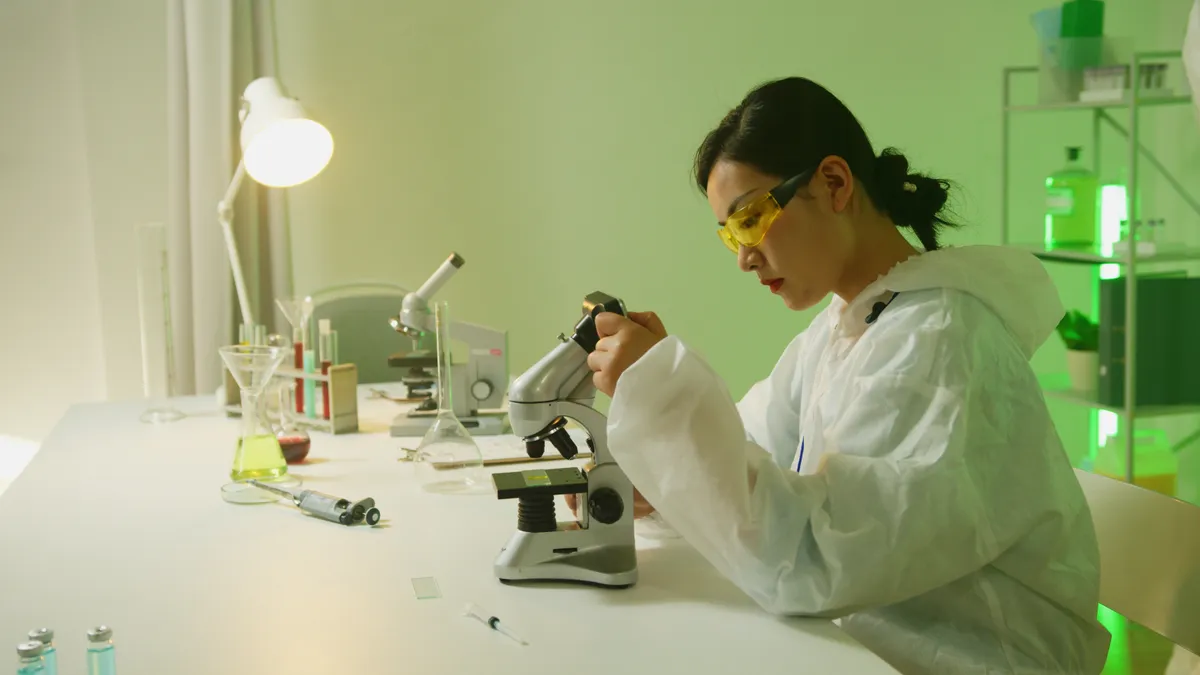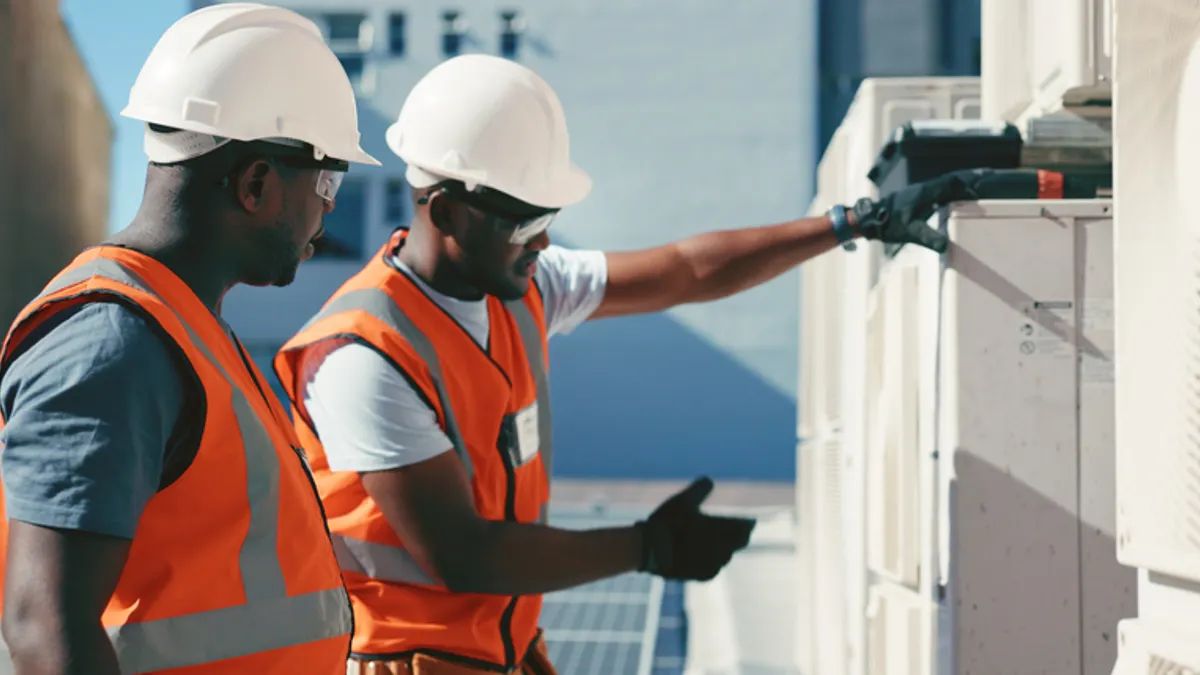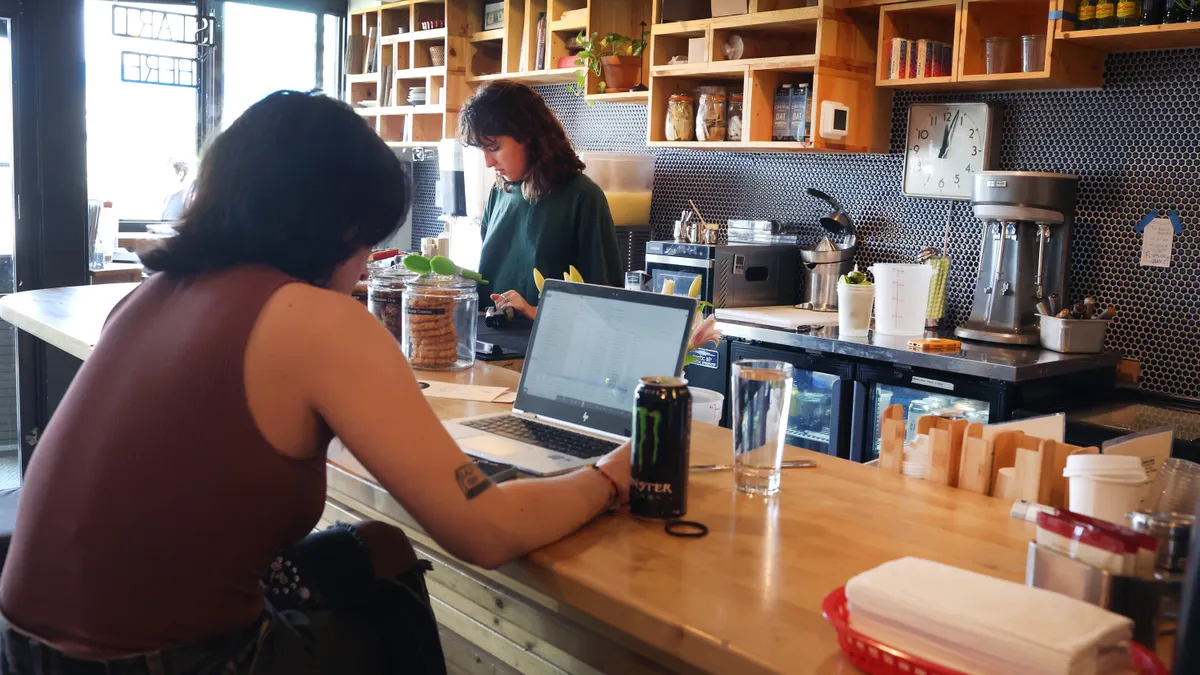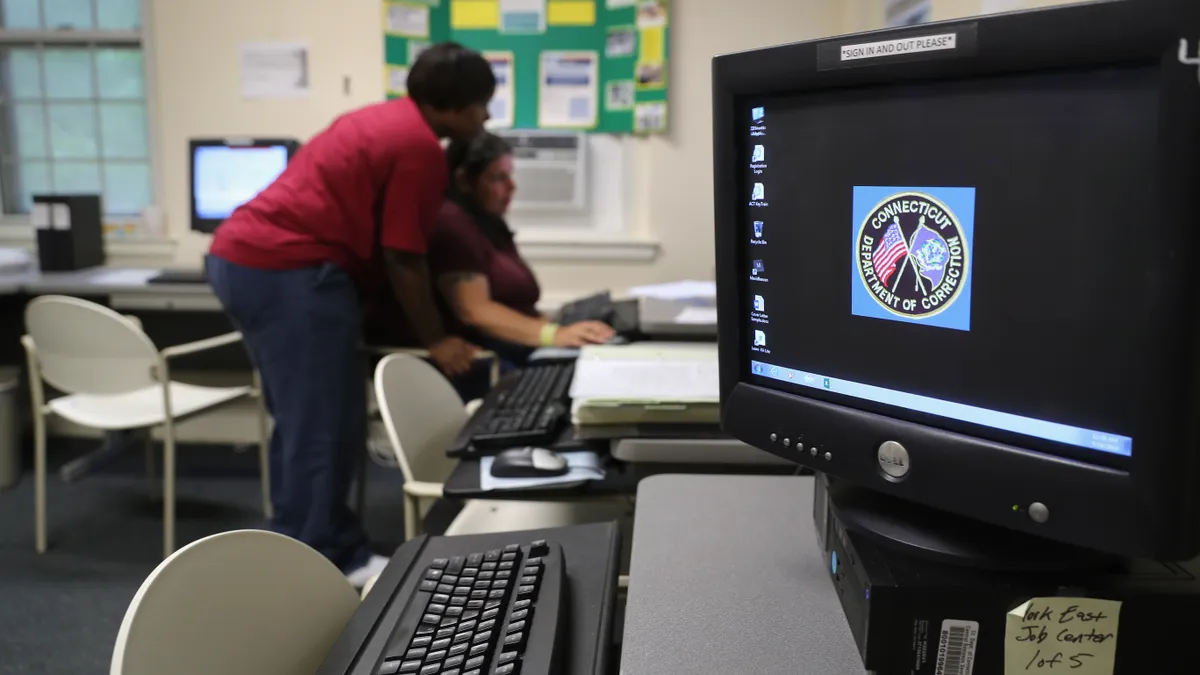From outside the cannabis industry, an easy misconception is that professionals should have a weed-smoking affinity to get ahead in the industry. From start-up execs to chief people officers at multi-state operators (MSOs), cannabis professionals have told HR Dive that frequent ingestion of THC or CBD products isn’t a consideration for most recruiters in the space. “We used to ask if you're a consumer. We never ask that now,” said Scott Kenyon, CEO of cannabis HR company Würk.
Beyond that, talent challenges in the field are deeply nuanced — and a hot debate has sparked up regarding the finer points of cannabis-related skills-building. As is the case for many HR departments lately, L&D has come to the fore. Employers, feeling the talent crunch, face the “build or buy” dilemma: Do they hire for potential and prioritize upskilling, or do they wait for the perfect candidate to cross their path?
As the lead for a human capital management company (HCM), Kenyon said that the biggest MSOs in the industry are investing in upskilling and career development. “I think if companies are not investing in L&D right now, they are a year or two behind the ball,” he said. In his experience running an HCM platform, he has seen L&D spend increase 300% in the last 12 months. “I expect that growth to continue for the next few years,” he said.
The need for L&D is growing, because the industry itself is expanding its roots. Leafly’s 2022 Jobs Report indicated a 33% year-over-year increase in cannabis job production. In the five years since the MSO has kept tabs on cannabis jobs, the industry has continually added 27% or more to the roster. “To put that in perspective, employment in business and financial occupations is only projected to grow 8% through the decade,” researchers said in an accompanying press statement.
Leafly, an MSO and thought leader in the space, counted 428,059 jobs created in 2021. Among them are budtenders, which are the retail associates and managers at dispensaries. Cannabis farmers are needed; so are chemists. Labs need technicians and managers. THC and CBD products need testers, need marketers, need packaging experts and supply chain support.
Brands will always need a COO and CFO — the last role presenting its own distinct payroll challenges. Legal counsel will assist with those. And of course, companies need HR — people teams — to fill open roles with talent and be the glue that makes it all work.
In the recruiting process, not only is weed consumption a non-factor, but cannabis knowledge isn’t the main trait each HR manager seeks on resumes.
“You do not have to have any knowledge of cannabis,” Tyneeha Rivers, chief people officer of Curaleaf, a prominent MSO, confirmed. If a potential hire is applying for a geneticist job or cultivator role, naturally, their science-based plant knowledge is an asset. “But for the vast majority of our positions. It's not a requirement that you have cannabis experience.”
She emphasized to HR Dive that most of the skill sets gained in other industries are transferable. “It's those basic competencies,” she added, that lay the foundation for a strong candidate.
Along with being a team player, the ideal candidate would need to understand that Curaleaf is “growing, rapidfire,” she explained. “You have to be nimble and be able to roll up your sleeves, and get the job done. That is what we're looking for.” So beyond being 21 or older, the main criterion that needs to be met is technical aptitude — or at least, a willingness to learn. As new blood trickles in, the debate regarding the future of L&D in cannabis is rekindled.
”That's a point of controversy within my own company,” Kenyon said. “Part of our new hire orientation, no matter what your role is, has been, ‘Here's, you know, five hours of training on the wonderful plant.’” Some professionals in the space, however, feel as if the industry has evolved beyond educating all employees about the botany of certain strains and the chemistry behind cannabinoids.
“‘The new accounting hire doesn't need to know about terpenes, and doesn't need to know about sativa, indica and THC percentages.’ This is what the industry is based on. How could you not know that?” Kenyon said, explaining the conflict. In practice, cannabis L&D for Würk employees looks like traditional training, as well as outings to grow facilities and dispensaries across the U.S.
Rivers mentioned that Curaleaf hires receive onboarding structured with 30-day, 60-day and 90-day plans. “In addition to that, my goal is for every team member to have career paths, learning paths. We want you to see that there's an upward trajectory within our company,” she added. “This is somewhere where you're going to be developed. That's something that I'm really passionate about — continuing to help our employees grow and invest in them.”





















